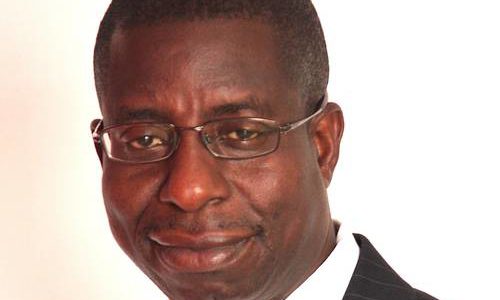
A mere two days after Britain voted to exit the European Union and resile into its island fortress mentality borne of the days of empire, a momentous event took place in Beijing. The thunderous shockwaves of the referendum meant that not many noticed as China held the first meeting of its own World Bank, named the Asian Infrastructure Investment Bank. Among its 57 members, ironically, is Britain which occupies a vice president’s chair and was in attendance, the turmoil at home notwithstanding. With AIIB, China announces loudly an intention to flex its financial muscle as the world’s second largest economy, setting it up to directly rival the Bretton Woods institutions that established the post-World War II global economic order.
The symbolism of the event is underlined by the words of Jin Liqun, AIIB’s president, who had once said of the United States-led world order, “History has never set any precedent that an empire is capable of governing the world forever.” It is a tale of two countries: while China, peeved by the refusal of the western democracies to accord it the respect commensurate with its newly acquired clout, launched a bank to rival the World Bank and the IMF (by venturing boldly outside its national enclave), Britain chose the opposite course of retreating into its nationalist shell ostensibly in protest of curtailing EU policies dictated from Brussels. While this demonstration of Britain’s insularity may not “of itself . . . completely destroy the international order,” as one observer has noted, it nevertheless “sets a precedent,” and a “potentially corrosive” one at that. How corrosive?
Take the words of two prominent proponents of Brexit. “Dare to dream that the dawn is breaking on an independent United Kingdom,” Nigel Farage of the U.K. Independence Party told his supporters. Not long ago, in the gilded days of an empire “on which the sun would never set,” it was other nations, mostly of “uncivilised natives,” who sought independence from Britain. “Empire or Little England?” the imperial rear-guard has cried ever since at every instance of declining fortune. And so Boris Johnson, abrasive former London mayor and co-leader of Brexit: “We can find our voice in the world again, a voice that is commensurate with the fifth-biggest economy on earth.” But Johnson and his London signify the divide and acute contradictions at home highlighted by the vote: on the losing side cosmopolitanism, and international finance which supposedly knows no nationalist barriers, also symbolised by a dynamic forward-looking population mostly young or under 45, and the winners who are more provincial, older and staunchly anti-immigrant, even overtly racist, whose rallying cry was “Take back our country.” But wasn’t globalisation supposed to underwrite a more harmonious and mutually prosperous future? Wasn’t it vociferously touted as the fulcrum of democracy, and alliances among nations its logical step towards the vital necessity of maintaining peace in a turbulent world precisely by subduing nationalist fervour, eliminating borders and trade barriers in favour of the benevolent god of the market?
It is, of course, too early to say that the ideals of international cooperation and open societies have now been renounced and that Brexit — no matter the rising cries of “Frexit” in France, led by usual suspect Marine Le Pen of the Nationalist Front, and of “Nexit” led by Geert Wilders of the Party for Freedom in the Netherlands — indeed sets a corrosive precedent for an even more divided world. Yet, it is instructive that the forces crying “To your nationalist tents, O people!” found their voice in the wake of the flooding of Europe by Syrian and other refugees displaced by war, poverty and hunger. And on that score, Globalisation, Brexit suggests, was and remains heavenly for the economic and political elite who together constitute the prosperous one percent that has seen more and more of the wealth of nations concentrated in its hands. As reports by Oxfam and the United Nations Development Programme have shown, the exponential increase in global economic wealth has been matched by an unprecedented rise in poverty and hunger. According to the UNDP, the three richest people in the world control assets that exceed the combined Gross Domestic Product of the 48 least developed countries while Oxfam reports that 85 persons are wealthier than half of the world’s population or about 3.5 billion people.
Consequently, the isolationist and anti-immigrant nationalism of Brexit is music to the ears of the expropriated, frustrated and angry masses of Europe and America. “If only we took our country back from the barbarians who have taken over our jobs and social security, then our lot would be better,” they say. As Newsweek put it, Brexit shows “a global desire to throw the bums out.” A deep class and social divide partly explains why the business and political class, including even the stridently xenophobic Donald Trump, incidentally, were for Britain staying in Europe. The corrosive effects of Brexit are all too disturbingly clear. Farage is right: a new dawn is breaking on the world, but, it seems, of rabid nationalism, falling just short of fascism. Poor countries like ours must do all they can to stop their people from fleeing hunger, insecurity and despair at home only to pine or perish behind the anti-immigrant walls set to go up in the so-called free world.
END

Be the first to comment